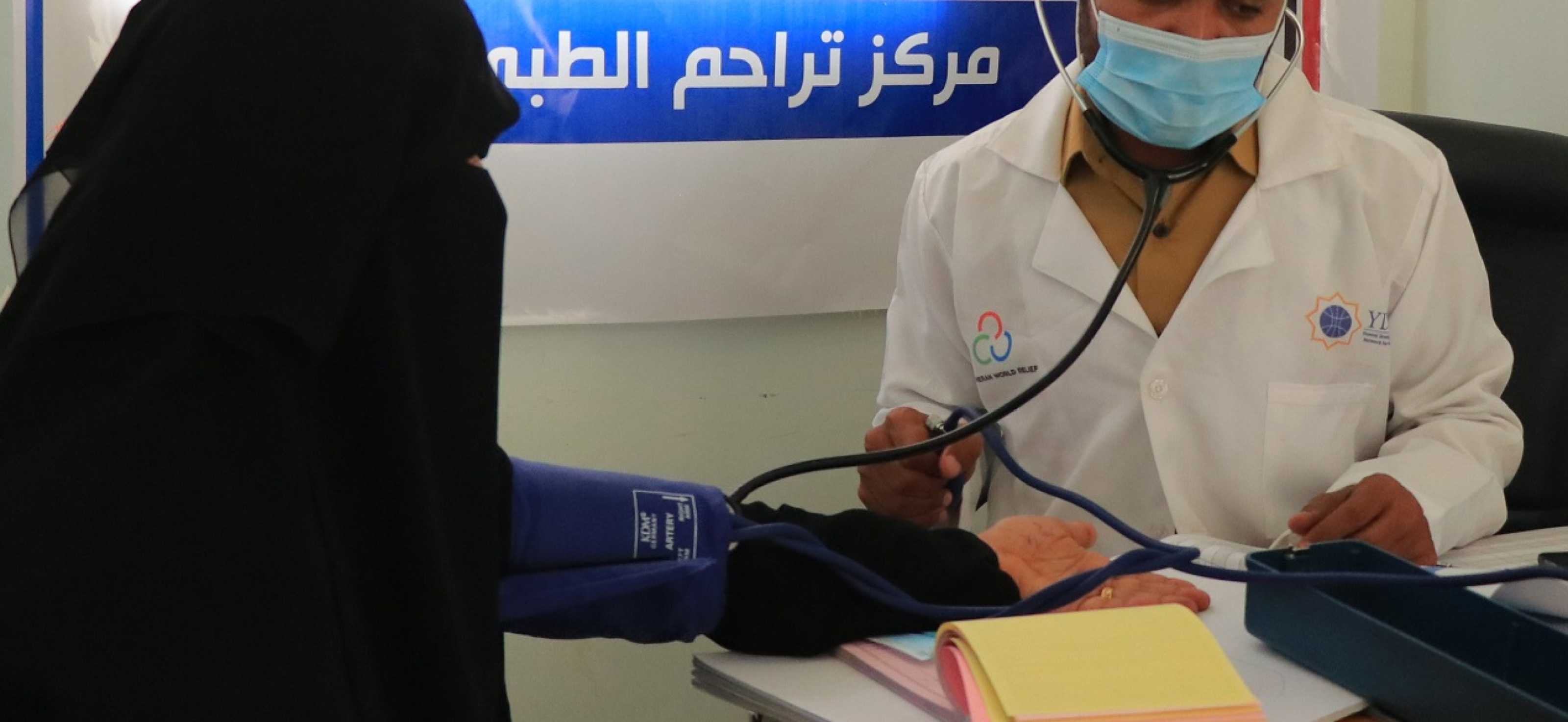Driving through Yemen’s desert under a blazing sun, Dr. Muhammad thinks about whether he’s brought all the right supplies to treat his patients. Antibiotics. Anti-diarrheals. Medicine for high blood pressure.
He’s going where other groups can’t reach: a camp for internally displaced people, or IDPs, who fled bombs and shooting. In a country crushed by civil war and poverty, “Health is a dire need,” says Muhammad.
The people in the camps have next to nothing. “Food is not available all the time,” says Amal Mohammed, who coordinates health services at the camps. “There are a lot of infectious diseases and bad hygiene at IDP sites. They are living in a desert.”
Keeping the camp residents alive and healthy is a difficult job. Your gifts have help train and equip health workers so that they can provide free medical care to the community.
‘A lot of children die of hunger’
“Yemen suffers. There’s not enough food,” says Sausan Abduallah, a nurse who is an IDP herself. She's been working in the camps for five years, handling infections, vaccination, and first aid. Because Yemen is in a hunger crisis, a crucial part of her work is weighing children and determining if they’re starving. "A lot of children die of hunger," she says.
Sausan doesn’t forget the hard cases. "I remember a 12-month-old child with malnutrition, weighing 16 pounds," she says. (Most 12-month-olds weigh 20 pounds.) They were able to give the child Plumpy’Nut, a nutrition-dense peanut paste sometimes supplied by the local health district. "The child responded well after two months," Sausan says with relief.
Things were even worse in the past. “The situation was very bad at the beginning. They only provided first aid, and then referred people to the hospital far away,” says Amal. “There were only one or two health workers for a population of hundreds”
“I remember one case, delivering a baby, but the health unit didn’t have the right tools,” Sausan says. “We referred the case to the city and the baby survived. But now the health unit has what it needs.”
With your help, health units have been reactivated and more medical staff — usually about 7 per vehicle — are on the teams that drive from the city to the camps. Your support provides medicines and trained personnel to treat more than a thousand people every month.
A double standard for girls
As in many countries, parents may focus on care for their sons, not their daughters. "They differentiate between boys and girls,” says Amal. “Sometimes they refuse to get treatment for a girl. They’ll take a boy to the hospital.
“We try to convince the parents that all kids need health care,” says Amal. "It’s free."
Because women must always be accompanied by a male relative, they may not always be able to travel to medical centers. “It’s more difficult for women to access health care,” says Amal. “The distance is so far — sometimes twenty miles — and they need someone to go with them. Men can easily go to the hospital.” Bringing health services closer to home saves women from suffering in silence, and your support is making that a reality.
Your compassion equips health care heroes
Sausan has to face unfriendly situations at times. “I visited some locations where people were very tough,” she says. “They shout at us. I try to break the ice...”
“Sausan is a hero,” says Amal. “She takes medicines everywhere. She’s living in a desert, there are no services, limited phone connections. Her work is amazing.”
Sausan, herself an IDP, is grateful to donors who make the health teams possible. “Yemen needs a lot of help,” she says.
“When I know that a person is worrying about a family member suffering from a disease, and then he finds someone who provides him with primary health services for free, I feel overwhelmingly happy,” says Amal. “It’s as if a mountain had been removed from his back.”
Life savers like Sausan and Muhammad draw strength from the wins. Muhammad recalls a boy with a palm tree thistle in his foot. After more than a week, it was infected.
When Muhammad removed it, “His parents were thankful. They’d tried going to other health places,” he says. “To take away a child’s pain, it’s a wonderful feeling.”

